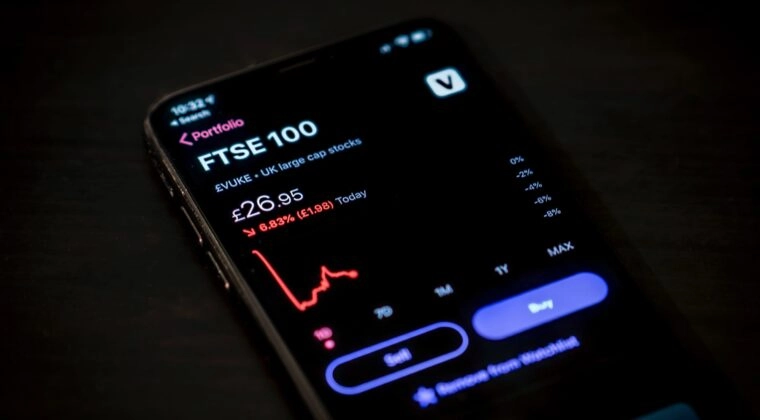-
- Trading Platforms
- PU Prime App
- MetaTrader 5
- MetaTrader 4
- PU Copy Trading
- Web Trader
- PU Social
-
- Trading Conditions
- Account Types
- Spreads, Costs & Swaps
- Deposits & Withdrawals
- Fee & Charges
- Trading Hours

The FTSE 100 tracks the 100 largest companies on the London Stock Exchange. Like the S&P 500, it is often regarded as an indicator of the health of the wider UK equity market. Also like the S&P 500, the FTSE 100’s constituent stocks are weighted by market cap, with re-adjustments happening every quarter, usually the Wednesday following the first Friday in March, June, September, and December. Funds tracking the FTSE-100 include the iShares Core FTSE 100 UCITS ETF (ISF) and the HSBC FTSE 100 UCITS ETF (HUKX).
The HSI is a free-float market cap-weighted index that tracks the largest 60 or so companies on the Hong Kong Stock Exchange (HKSE). Combined, these companies make up roughly 58% of the total market cap of the HKSE. The index is often seen used as a barometer for the Hong Kong equities markets, as well as the Asian markets in general. The HSI can be traded through the iShares MSCI Hong Kong ETF (EWH) and the Franklin FTSE Hong Kong ETF (FLHK).
The SSE Composite is a weighted index made up of both A-shares and B-shares of all the shares that are traded on the Shanghai Stock Exchange. Like the Nasdaq, more focused indices derived from the main composite exist – like the SSE 180 and SSE 50. Due to the immaturity of the Chinese equities market, the SSE is often seen as volatile x`
Exposure to the Chinese market also comes in the form of ETFs offered on other exchanges, like the DWS Xtrackers Harvest CSI 300 China A-Shares ETF (ASHR), or the China A50 on the SGX.
Commonly referred to as the Nikkei, the index covers Japan’s top 225 blue-chip companies. It is price-weighted (as opposed to by market-cap) like the Dow Jones Industrial Average. Constituent shares are reviewed every September and adjusted, if needed, in October. Unlike typical stock averages that generally grow at a steady exponential pace (like the S&P500) the Nikkei 225 saw its peak of almost 39,000 yen – not adjusted for inflation – in 1989 at the height of Japan’s asset price bubble. There are multiple ETFs that track the Nikkei, including Blackrock Japan’s iShares Nikkei 225 ETF, which is traded on the Tokyo Stock Exchange.
The CAC 40 is a market cap-weighted index comprising the largest 40 companies listed in on the Euronext Paris (formerly the Paris Bourse) and is the exchange’s benchmark index. It is used as a barometer for the French markets, and includes well-known multinational companies including LVMH, L’Oreal, and BNP Paribas – making it a popular index for overseas investors. Indices that track the CAC 40 include the Lyxor CAC 40 ETF.
The DAX is Germany’s primary index representing the 40 largest companies on the Frankfurt Exchange. The constituent companies are weighted according to their free-float market capitalisation. While historically consisting of 30 companies, the DAX expanded to 40 companies in September 2021. Constituent companies include BMW, Deutsche Bank, and Linde. The Global X DAX Germany ETF (DAX) is traded on the Nasdaq.
The CNX Nifty, also called the Nifty 50 or India 50, is a benchmark index for the National Stock Exchange (NSE) of India. It uses a free-float market cap weighing and collects a diverse mix of 50 of the largest and most liquid stocks across 13 sectors. It is one of the biggest instrument in Asia, and the world’s most-traded derivatives contract. ETFs that track the CNX Nifty include the iShares India 50 ETF.
The CBOE Volatility Index is one of the measures of the US stock market’s expected volatility. It is calculated using S&P 500 options and is also known as the fear gauge. Generally speaking, the VIX has an inverse correlation to the S&P 500, and can be used as a hedge. Like all indices, the VIX is traded through derivatives like ETFs.
While indices are not directly traded on exchanges, Contracts for Differences (CFDs) allow investors to do so as they do not require ownership of underlying assets.
Unlike ETFs, which are offered by companies and often charge a small management fee, index CFDs do not have management fees, and often will offer the chance to leverage your positions.
Want to trade indices like the HSI and CAC40? Sign up for an account with PU Prime today to do so at low spreads in a highly liquid environment.
Learn How To Get Started With Trading?

Trade forex, indices, metal, and more at industry-low spreads and lightning-fast execution.
Sign up for a PU Prime Live Account with our hassle-free process.
Effortlessly fund your account with a wide range of channels and accepted currencies.
Access hundreds of instruments under market-leading trading conditions.
Please note the Website is intended for individuals residing in jurisdictions where accessing the Website is permitted by law.
Please note that PU Prime and its affiliated entities are neither established nor operating in your home jurisdiction.
By clicking the "Acknowledge" button, you confirm that you are entering this website solely based on your initiative and not as a result of any specific marketing outreach. You wish to obtain information from this website which is provided on reverse solicitation in accordance with the laws of your home jurisdiction.
Thank You for Your Acknowledgement!
Ten en cuenta que el sitio web está destinado a personas que residen en jurisdicciones donde el acceso al sitio web está permitido por la ley.
Ten en cuenta que PU Prime y sus entidades afiliadas no están establecidas ni operan en tu jurisdicción de origen.
Al hacer clic en el botón "Aceptar", confirmas que estás ingresando a este sitio web por tu propia iniciativa y no como resultado de ningún esfuerzo de marketing específico. Deseas obtener información de este sitio web que se proporciona mediante solicitud inversa de acuerdo con las leyes de tu jurisdicción de origen.
Thank You for Your Acknowledgement!